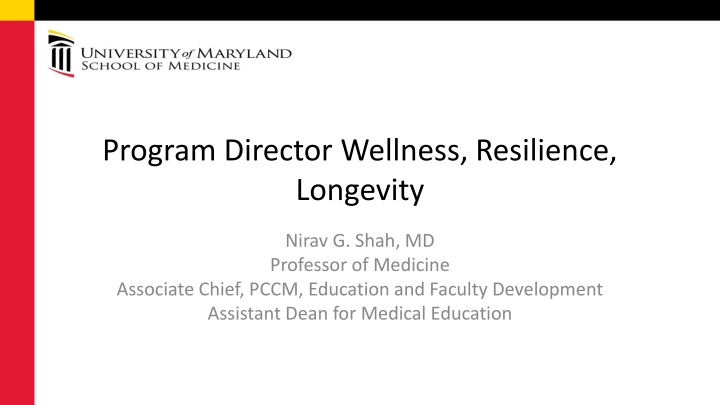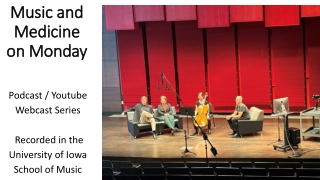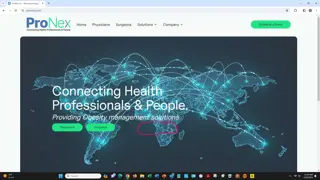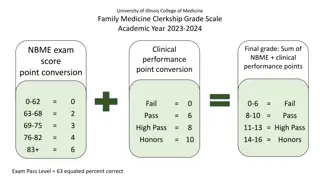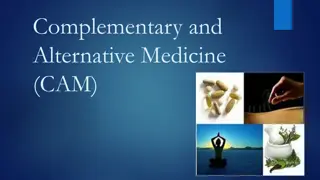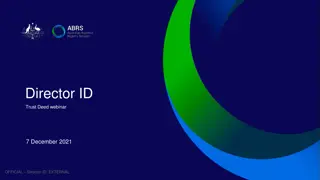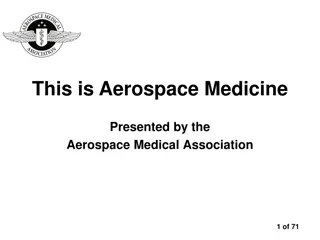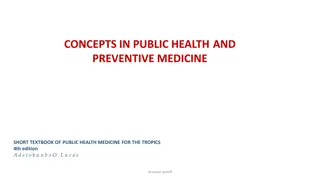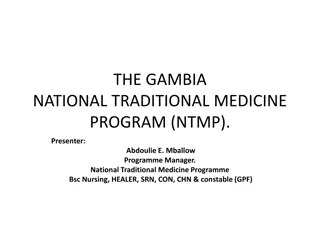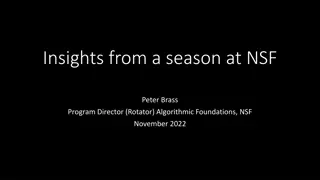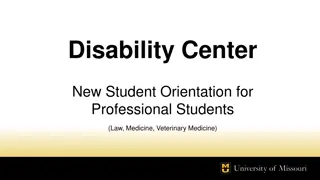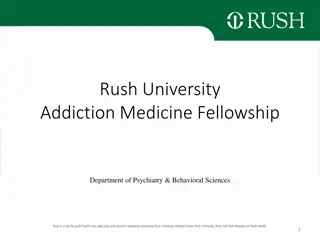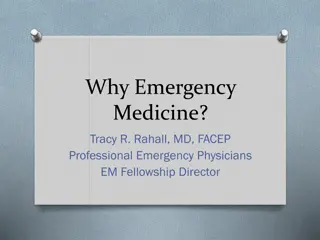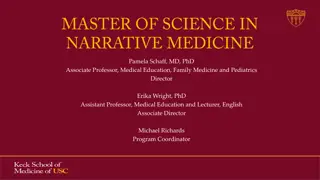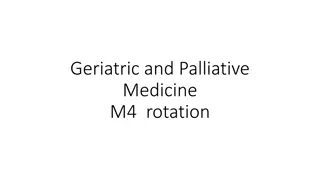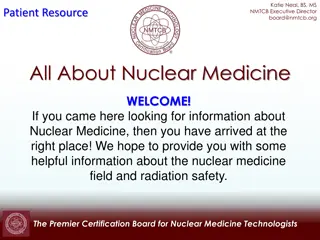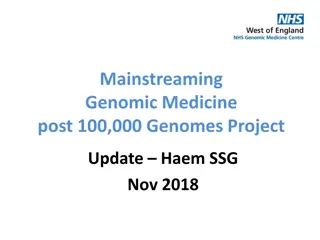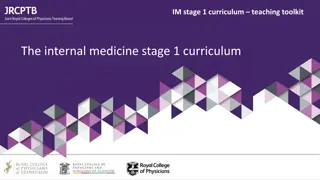Insights on Program Director's Role in Academic Medicine
Program Director Nirav G. Shah, MD, shares valuable insights on wellness, resilience, and longevity in academic medicine. Key themes include mentorship, growth, learning, stress management, and leadership. The importance of balance, organizing curricula, and core features of successful Program Directors are highlighted. Ultimate goals focus on productivity, contributions, team dynamics, family time, and fulfillment. Emphasizing leadership theory, the tripartite mission of academic medicine, and maintaining balance in daily activities. The importance of working smarter, not harder, is emphasized.
Download Presentation

Please find below an Image/Link to download the presentation.
The content on the website is provided AS IS for your information and personal use only. It may not be sold, licensed, or shared on other websites without obtaining consent from the author.If you encounter any issues during the download, it is possible that the publisher has removed the file from their server.
You are allowed to download the files provided on this website for personal or commercial use, subject to the condition that they are used lawfully. All files are the property of their respective owners.
The content on the website is provided AS IS for your information and personal use only. It may not be sold, licensed, or shared on other websites without obtaining consent from the author.
E N D
Presentation Transcript
Program Director Wellness, Resilience, Longevity Nirav G. Shah, MD Professor of Medicine Associate Chief, PCCM, Education and Faculty Development Assistant Dean for Medical Education
Program Director Pro-Con List Mentorship Paperwork Growth Accreditation Learning Stress Leadership Time Protected time Pressure
Organize and Implement Curricula Evaluate Trainee Performance Provide Meaningful Instruction Be a Role Model Advocate for the Trainee Kumar, Swee, Suneja. BMC Medical Education 2019.
Core Features of Successful PDs Authority Autonomy Accessibility Accountability Adaptability Authenticity
Ultimate Goals Increase productivity while working Make meaningful contributions Create effective teams and relationships Be able to spend quality time with my family Have fun and be fulfilled
Leadership Theory Leadership is not defined by the position, but rather by the relationships with the trainees.
Academic Medicine: Tripartite Mission Clinical Service Deliver exceptional patient care Train the next generation of the health care workforce Teaching Research and Scholarship Conduct innovative research and/or share things that work for us
The Balance in our Daily Life CLINICAL SERVICE RESEARCH TEACHING ADMINISTRATION
Work Smarter, Not Harder Having a clear strategy to prioritize my most important activities Allows me to feel satisfied with my work and to enjoy coming to work each day Helps me avoid feeling overwhelmed, overcommitted, frustrated, overworked Prevents me from burning out
Professional Health and Wellness The ethics of self-care: The medical academy's primary ethical imperative may be to care for others, but this imperative is meaningless if it is divorced from the imperative to care for oneself. How can we hope to care for others, after all, if we ourselves, are crippled by ill health, burnout or resentment? Cole, Goodrich & Gritz. Faculty Health in Academic Medicine: Physicians, Scientists and the Pressures of Success. Humana Press 2009; pg 7.
Professional Health and Wellness The ethics of self-care: (cont.) medical academics must turn to an ethics that not only encourages, but even demands care of self. Cole, Goodrich & Gritz. Faculty Health in Academic Medicine: Physicians, Scientists and the Pressures of Success. Humana Press 2009; pg 7.
How does a PD stay well? Lifestyle Network Get Involved De-stress Healthy lifestyle: exercise, sleep, balanced diet Create a network that is supportive and additive Get involved at the campus level, in the region, and nationally Manage stress: meditation, hobbies, therapy
Group Dynamics 1+1 = 2 But does it really?
Find a Group that Makes Everyone Better! Team-work Communication Collaboration Trust
What did this actually mean for me?
My Journey: from the bench to the classroom Professor of Medicine, Assistant Dean for Medical Education Associate Professor, PD for PCCM Assistant Professor, Assistant PD for PCCM Clinical focus: ICU, ILD Research focus: Minimal thermobiology Education collaboration Teaching focus: GME, UME Clinical focus: ILD, some ICU, some inpatient pulm Research focus: Curriculum development UME/GME Teaching focus: UME, GME Clinical focus: ICU, EBUS Research focus: Thermobiology Teaching focus: GME 2014 2019 2009 2017 2022 PD for PCCM Assistant Dean for Curriculum, Associate Chief for PCCM Clinical focus: ICU, Pulm Research focus: Thermobiology Teaching focus: GME Much more Administration Clinical focus: ILD, some ICU Research focus: Curriculum development UME/GME Teaching focus: UME, GME
The Balance in our Daily Life CLINICAL SERVICE RESEARCH TEACHING ADMINISTRATION
What Roles Have Followed after being a PD? Vice Chair for Education, Dept of Medicine (OHSU) Vice Chief for Education & Faculty Development, PCCM (Penn) Director of the ILD Program and Associate Chief for Clinical Affairs (UMSOM) Associate Division Head (Henry Ford) Associate Dean of Medical Education (Ohio State) Assistant Dean for Faculty Affairs (Indiana) President of ATS, Department Chair, President & CEO AAIM (Vermont) President of Chest, Director of Preclinical Foundations Curriculum (Emory) Chief Academic Officer, AMA (Hopkins) DIO (UMMC)
Find the things you want to fill your Thali with. Know that you have support at UMSOM. Cherish the moments, the people, and the twists and turns of the journey that is the fun part.
Thank you!! Nirav G. Shah, MD ngshah@som.umaryland.edu @ngshah1
